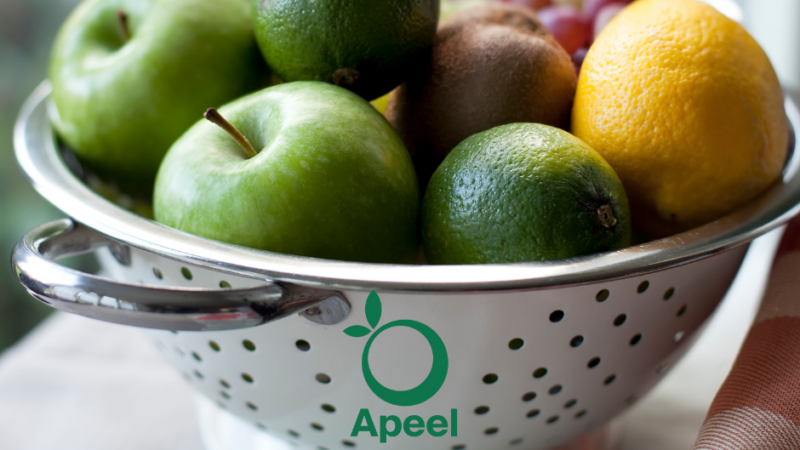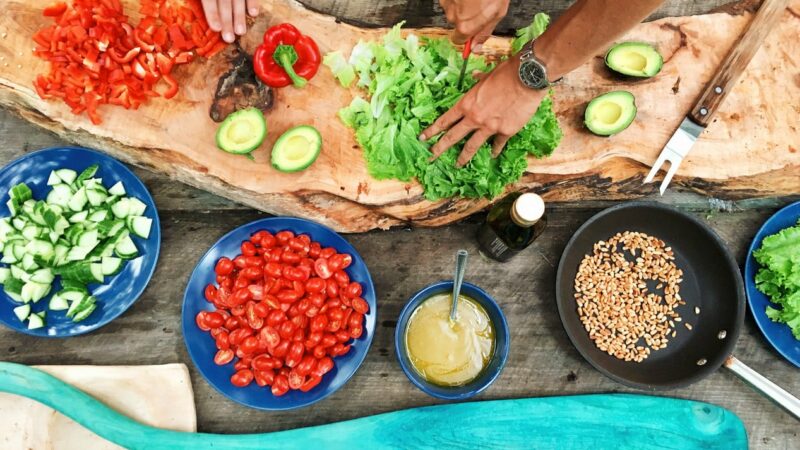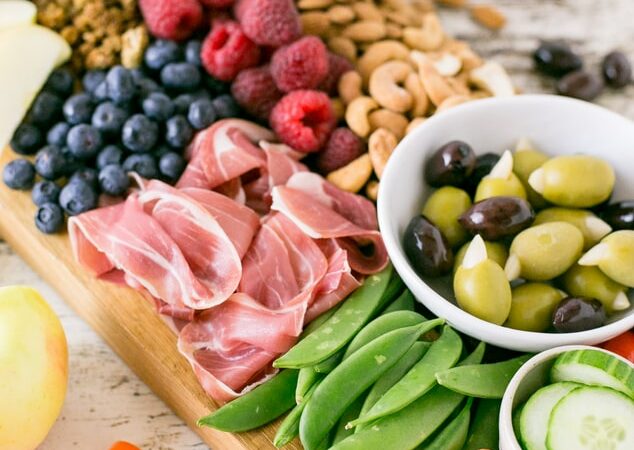Eating Out? First Visit The Eat Well Guide

HFI: What a wonderful resource to eating well wherever you are! These days, it’s hard to trust that the food you’re eating was produced in a safe, humane and sustainable manner. From their site: “We built the Eat Well Guide to make it easier to find good food and to support local farmers, restaurateurs and others who are doing their best by their customers, their workers and the planet. We personally vet every business that goes into the Guide, and we never charge or accept money in exchange for inclusion.”
The Guide’s thousands of listings include restaurants, farms, farmers’ markets, stores and more. Search by location and/or category, or check out our city guides to find tailored listings for restaurants and other sustainable vendors in cities across the US.
Visit the Eat Well Guide
We’ve set out to map the sustainable food system. We can do a lot on our own, but we can go further, faster, with help from people like you all over the country. If you know of a sustainable business that should be listed in the Guide, please tell us! You can also use the “Help Improve This Listing” button to let us know about any errors, or to flag a business if you don’t think it belongs in the Eat Well Guide.
Standards for Inclusion
Sustainable agriculture means producing food using farming techniques that protect the environment, public health, human communities and animal welfare. This allows farmers to supply healthful food without compromising future generations’ ability to do the same. The Eat Well Guide includes sustainable farms, along with restaurants, markets and other businesses that offer sustain-ably produced foods.
Our Process
The Eat Well Guide is a labor of love – it’s a nonprofit endeavor and has always been completely free for those who use it and for all the businesses listed within. Over the course of the Guide’s decade-plus history, we’ve built the nation’s most robust directory of sustainable food purveyors through staff research, and with suggestions from individuals, partner organizations and the owners of many of the businesses we list.
Our staff reviews all listings before adding them to the Guide by checking websites and/or calling businesses. Although we’re not a certifying agency, we make every effort to ensure that each listing meets the standards outlined below. We also make note of any sustainability certifications a business has earned from third-party certifiers on its listing page.
Our Standards
FARMS
We list sustainable farms and ranches that offer foods including beef, dairy, eggs, pork, poultry and produce, along with U-pick farms and Community Supported Agriculture (CSA) programs that:
- Promote animal welfare and raise animals on pasture without non-therapeutic antibiotics, synthetic growth hormones or the confinement systems used on industrial operations.
- Protect biodiversity, soil, water and other natural resources, and avoid use of toxic pesticides, synthetic fertilizers and genetically modified (GM) crop varieties.
While many farms listed in the Guide are USDA certified organic, we also include farms that are in the process of transitioning to organic, farms that go above and beyond the organic standards and farms that choose to use sustainable production techniques without seeking organic certification.
RESTAURANTS
We list restaurants that:
- Offer foods prepared with ingredients supplied directly by local, sustainable farms and other purveyors of local, sustainable food. Since seasonal growing conditions and access to sustainable farms vary widely across the country, we don’t require restaurants to source exclusively from local, sustainable farms. We include restaurants that make a sincere effort toward sustainability by sourcing the most sustainable ingredients as often as possible.
BEER, WINE AND COCKTAIL ESTABLISHMENTS
We list breweries, wineries and bars that:
- Demonstrate a commitment to sustainability by offering beer, wine and/or liquor produced using ingredients from growers who have achieved organic or biodynamic certification or practice sustainable growing techniques; abstain from the use of industrial pesticides and/or preservatives; utilize agricultural methods that promote biodiversity and soil enrichment; and conserve water and protect natural resources.
STORES
We list stores including bakeries, butcher shops, cheese shops, co-ops, fish markets, online shops and other specialty shops that:
- Offer foods supplied directly by local, sustainable farms and other purveyors of local, sustainable food. Since seasonal growing conditions and access to sustainable farms vary widely across the country, we don’t require stores to source exclusively from local, sustainable farms. We include stores that make a sincere effort toward sustainability by offering the most sustainable foods as often as possible.
- Fish markets must demonstrate a commitment to sustainability by selling seafood that is fished or farmed in ways that have less impact on the environment. For more information on sustainable seafood, please see Food & Water Watch’s Smart Seafood Guide.
FARMERS’ MARKETS
We list farmers’ markets that:
- Offer foods supplied directly by local, sustainable farms and other purveyors of local, sustainable food.
CHEFS, CATERERS AND MEAL DELIVERY
We list chefs, caterers and meal delivery services that:
- Offer foods prepared with ingredients supplied directly by local, sustainable farms and other purveyors of local, sustainable food. Since seasonal growing conditions and access to sustainable farms vary widely across the country, we don’t require chefs, caterers and meal delivery services to source exclusively from local, sustainable farms. We include chefs, caterers and meal delivery services that make a sincere effort toward sustainability by sourcing the most sustainable ingredients as often as possible.
BED AND BREAKFASTS
We list bed and breakfasts and farm stays that:
- Provide overnight guests with foods supplied directly by local, sustainable farms and other purveyors of local, sustainable food. Since seasonal growing conditions and access to sustainable farms vary widely across the country, we don’t require bed and breakfasts to source exclusively from local, sustainable farms. We include bed and breakfasts that make a sincere effort toward sustainability by sourcing the most sustainable ingredients as often as possible.
ORGANIZATIONS
We list community gardens, education centers and organizations that:
- Promote a more sustainable food system through education and/or advocacy.






